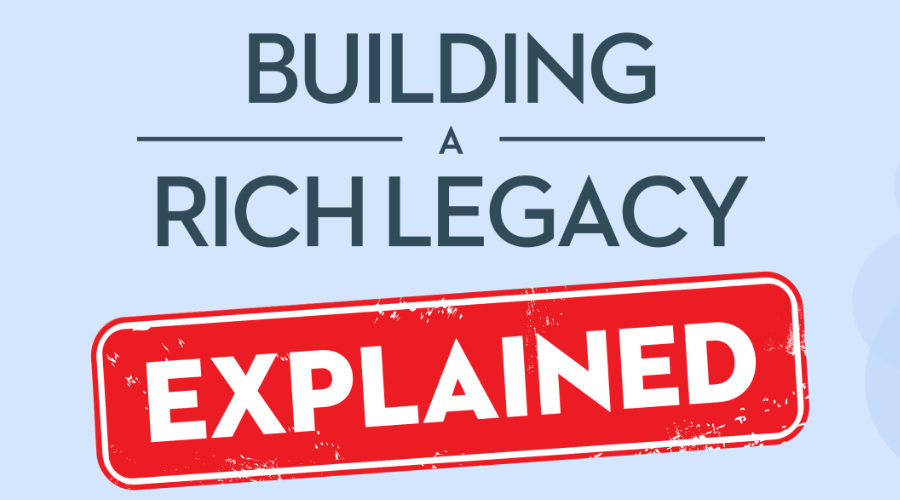Establishing good financial habits can prepare you for whatever life brings
Taking care of your finances involves more than choosing the right investments. Often, it’s the small steps you take that will make a big difference to your financial health – cash flow management, keeping your expenses in check, sticking to a budget, having an emergency fund, and eliminating high-interest debt. All of these healthy financial habits can go a long way to ensuring your financial readiness for whatever life brings. The more prepared you are, the better your financial health.
Why is Financial Health Important
Financial preparedness is especially important in today’s uncertain economy. Inflation is at a 40-year high and interest rates have risen sharply this year. With increased costs for everything from groceries to electricity bills, more than 55% of Canadians say they can’t keep pace with inflation. Seniors on a fixed income are facing even greater challenges. There is even talk of a potential recession in Canada. It’s no wonder many of us are feeling worried about what comes next. That’s why financial preparedness and establishing healthy financial habits are so important. HomeEquity Bank has worked with Credit Canada to bring you an essential resource for today’s climate, How to Plan for Uncertain Times.
Financial Habits to improve Financial Health for Financial Readiness
Fortunately, there are steps you can take to improve your financial readiness, plan for the future, and reach your goals. An honest self-assessment about your financial habits is a good place to start. Ask yourself these questions:
- How prepared are you for unexpected events? Do you have an emergency fund for unanticipated expenses?
- Do you have a budget that you stick to?
- Do you save money for retirement on a regular basis? Are you on track to meeting your longer-term goals?
- Do you pay off your credit card bills on time each month?
The more of these questions that you can answer yes to, the better your financial health. Here are some tips and strategies to help you stay on track.
Establish a personal budget
Quite simply, a personal budget is a written plan that details how and where you spend your money each month. It’s an important financial tool because it can help you reduce unnecessary expenses and prioritize where you spend money. Your personal budget tracks all your money coming in (income) and all your money going out (expenses). At a time when inflation is high and cash flow management is a concern, sticking to a budget can improve your financial health.
The first step is to track all your expenses for one month, in two columns or categories (there are many online budgeting tools and apps to help you keep track). The first category is your necessary or non-discretionary expenses, including groceries, housing (mortgage payments or rent), childcare expenses, utility bills, and insurance. The second category will include your discretionary expenses, including entertainment, dining out, cable TV, and gym memberships.
The next step is to calculate your total monthly income, including wages, investment income, freelance income, and any support payments. Then subtract your non-discretionary expenses from your income. The amount left over will be what you have available to spend on discretionary items or to save. If your discretionary spending is higher than that amount, it’s a good idea to review your expenses and look for ways to cut back.
Personal cash flow management
The idea in creating a budget is not to deny yourself things that make you happy, but to gain a big-picture view of your discretionary spending patterns so you can improve your overall financial health. For instance, if you often dine out at restaurants with friends, one way to cut back but still enjoy your friends’ company is to take turns making dinner for each other. If you find you’re not using your gym membership that often, consider working out at home, in your condo gym or consider other free alternatives like a walk outside. Instead of buying two fancy coffees a day, why not make the first one at home? These are just a few of the ways you can cut back without denying yourself. When you start to add up these small wins, your cash flow starts to improve.
Managing Savings & Emergency Funds
When you start to find savings through your budget, you’ll want to use that money in ways that boost your financial readiness. In today’s economic climate, one of the best money moves you can make is to create an emergency fund. Despite our best intentions, life can sometimes derail our plans. That’s why it makes good sense to build a “rainy day” fund to cover unplanned events such as an injury, an emergency home repair, or a job loss.
Experts recommend that we have enough cash in reserve to cover at least three to six months of living expenses — groceries, the rent or mortgage, utilities, phone, transportation, and other necessities. If you have dependents, or your income fluctuates because you’re self-employed, you might want to build a larger emergency fund. The money you put away should be completely secure and accessible. A high-interest savings account is a good option for your fund, as you’ll earn a competitive rate of interest and your funds are easily accessible.
Personal Debt Management
Debt itself is neither good or bad; it’s how you use it that counts. For instance, taking on debt can be good for your financial health if you use it to purchase something of value, such as a home, business, or education – all of which represent an interest in your future.
However, debt that compounds and provides no future value to you or your family can be detrimental to your financial readiness. This kind of debt is often used to fund discretionary lifestyle purchases that you don’t need or can’t afford. That’s why paying down your high-interest-rate debt is such an important financial habit, as rising interest rates are making it much more expensive to carry credit card debt. Another way to manage debt is to consolidate credit card debt with a line of credit to lower your interest-rate costs.
Financial Health improvement for retirees
We’ve looked at many different ways you can improve your cash flow and financial health. For individuals approaching or in retirement, cash flow is an even greater concern, as inflation is making it difficult for those on a fixed income to maintain their standard of living.
Fortunately, there is a solution for retirees facing an uncertain economic future: a reverse mortgage, which is a loan secured against the appraised value of your home. One advantage shared by many Canadians 55+ is widespread home ownership – almost 70% of Canadians own their own homes. Although home prices have tumbled this year, many purchased homes during the past few decades of record-low interest rates and have benefited from substantial price appreciation.
The CHIP Reverse Mortgage from HomeEquity Bank allows Canadian homeowners age 55+ to access up to 55% of their home’s value and turn it into tax-free cash. With the CHIP Reverse Mortgage, you don’t have to make any regular payments or pay back the loan until you move or sell. Plus, you always maintain the ownership and title of your home.
You can choose to receive the tax-free funds as a lump sum or in regular monthly deposits, and can use the cash for any of your financial needs, including:
- Funding your retirement lifestyle
- Building an investment portfolio
- Home renovations
- Helping children and grandchildren with down payments on a home
- Debt consolidation
- An emergency fund for unforeseen health care costs
Best of all, with the CHIP Reverse Mortgage, you get to stay in your home for as long as you wish – a dream shared by more than 90% of Canadian retirees.
To learn how to improve your financial health and boost your cash flow, download Credit Canada’s How to Plan for Uncertain Times and read more about the CHIP Reverse Mortgage or call us today at 1-866-758-2447 to find out how much you could borrow.































